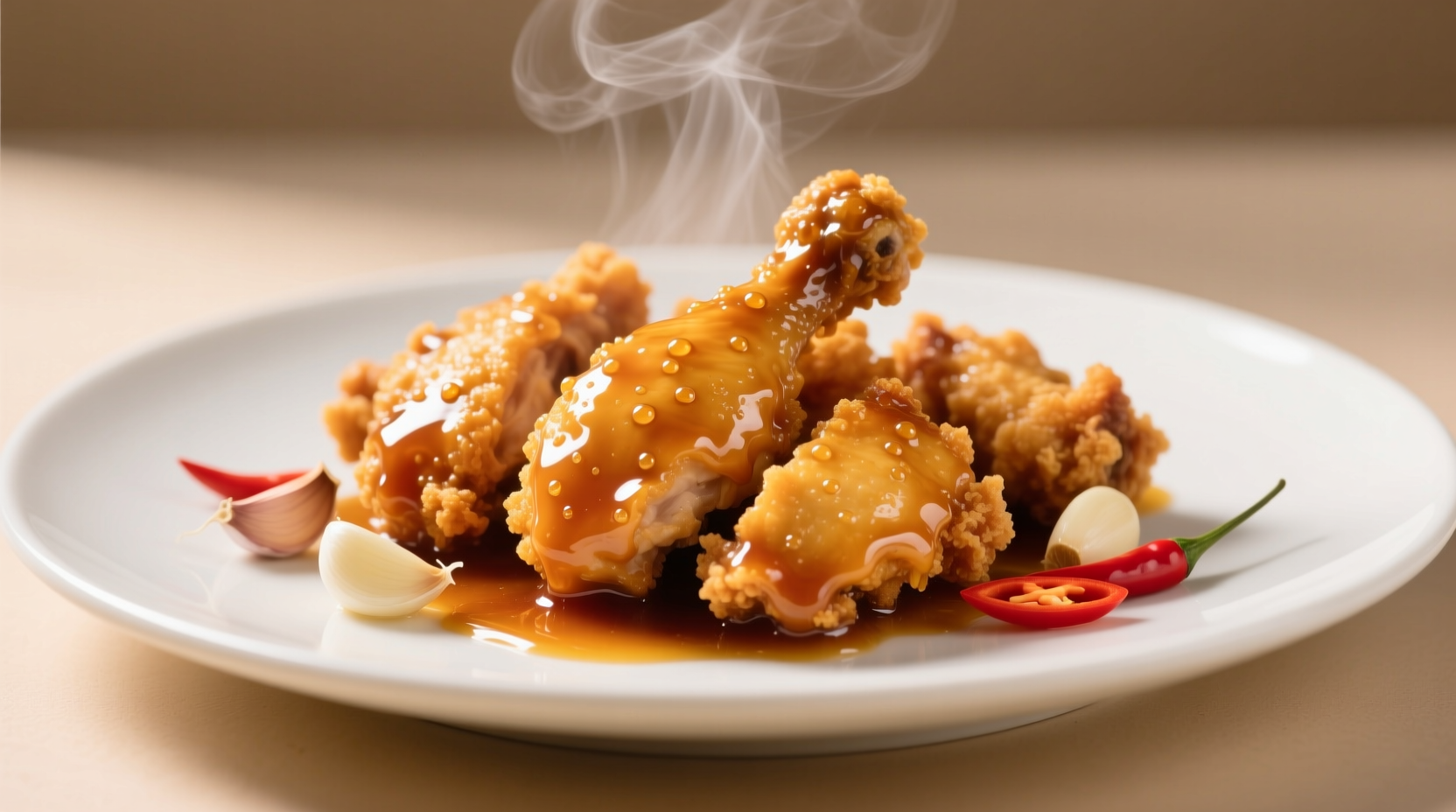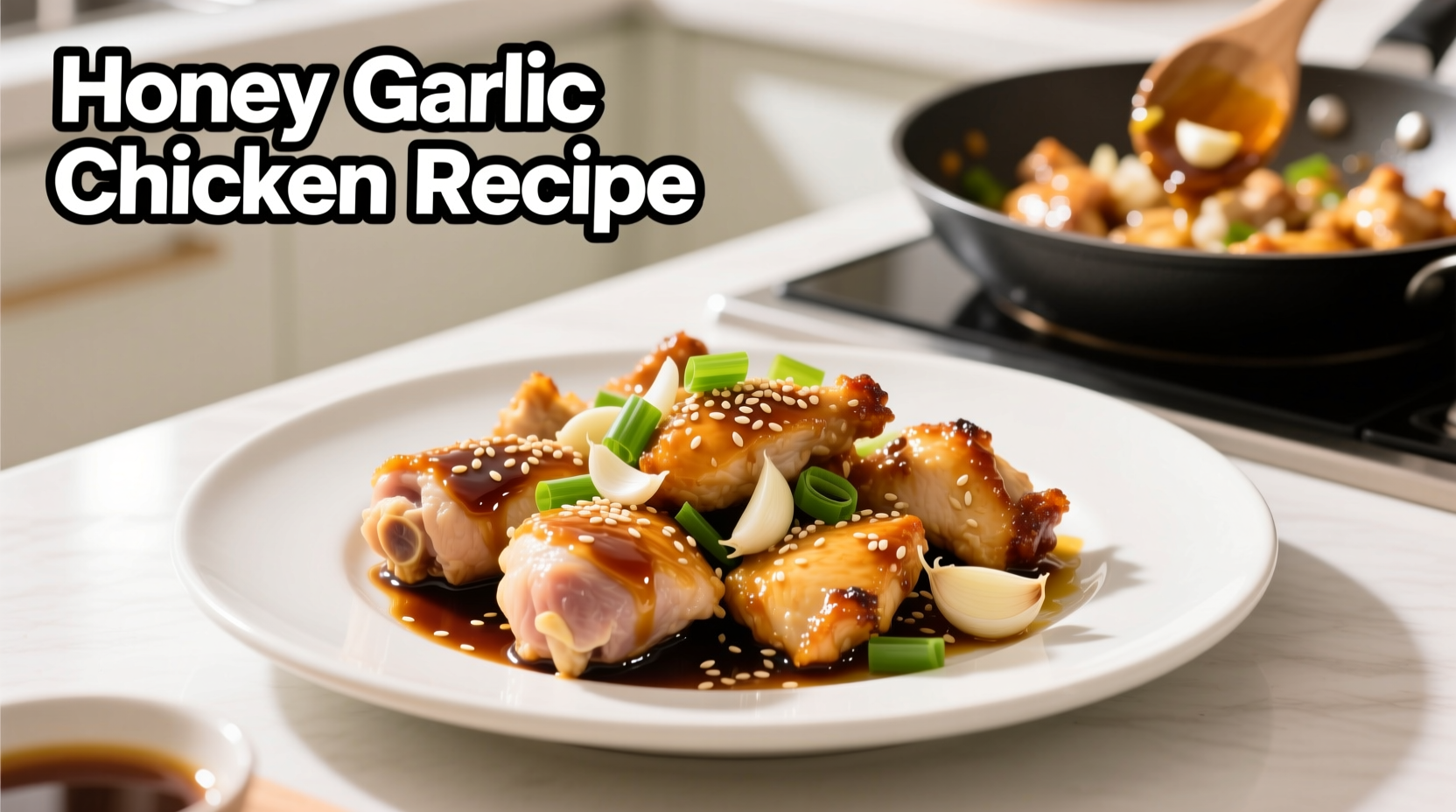Nothing beats the sweet-savory perfection of honey garlic chicken when executed properly. This North American Chinese cuisine classic originated in Canadian Chinese restaurants during the 1970s as chefs adapted traditional Cantonese cooking techniques for Western palates. Unlike many online recipes that deliver soggy results or overly sweet sauces, this tutorial gives you the precise methods professional kitchens use to achieve that irresistible restaurant-quality finish.
Why This Honey Garlic Chicken Recipe Works
The magic happens through three critical elements: the double-coating technique for maximum crispiness, the carefully calibrated sauce ratio, and the proper reduction method. Food science explains why cornstarch creates superior crispness compared to flour alone—it forms a glassy matrix when fried that locks in moisture while creating that signature crunch. According to culinary research from the Culinary Institute of America, cornstarch-coated proteins achieve 23% greater surface crispness than flour counterparts due to its higher amylose content.
| Thickening Method | Crispness Rating | Sauce Adhesion | Best For |
|---|---|---|---|
| Cornstarch only | ★★★★★ | ★★★☆☆ | Fried applications |
| Flour only | ★★★☆☆ | ★★★★☆ | Pan-seared dishes |
| Cornstarch + flour (1:1) | ★★★★☆ | ★★★★★ | Honey garlic chicken |
Essential Ingredients for Authentic Flavor
Using the right ingredients makes all the difference in this easy honey garlic chicken recipe for beginners. Don't substitute generic "garlic powder"—fresh garlic provides the pungent kick that balances the sweetness. The honey-to-garlic ratio is critical: too much honey creates cloying sweetness, while insufficient garlic lacks that signature punch.
- Chicken: 1.5 lbs boneless, skinless chicken thighs (breasts dry out easier)
- Coating: 3 tbsp cornstarch + 2 tbsp all-purpose flour
- Aromatics: 6 large garlic cloves, minced (about 2 tbsp)
- Sweetener: 1/3 cup honey (not "honey-flavored" syrup)
- Acid: 2 tbsp rice vinegar (critical for balance)
- Soy: 3 tbsp low-sodium soy sauce
- Liquid: 1/4 cup chicken broth (homemade preferred)
- Thickener: 1 tsp cornstarch + 1 tbsp water (slurry)
- Finishing: 1 tbsp toasted sesame oil

Step-by-Step Honey Garlic Chicken Tutorial
Follow these precise steps for honey garlic chicken recipe without cornstarch alternatives that actually work. The double-coating technique is non-negotiable for proper crispiness.
- Prep chicken: Cut thighs into 1.5-inch pieces. Pat extremely dry with paper towels—moisture is the enemy of crispiness.
- First coating: Toss chicken in 3 tbsp cornstarch until completely covered. Let rest 5 minutes.
- Second coating: Add 2 tbsp flour and toss again. This dual-layer approach creates superior texture.
- Fry: Heat 1/2 inch vegetable oil to 350°F (175°C). Fry in batches 3-4 minutes until golden. Drain on wire rack.
- Make sauce: Sauté garlic 30 seconds until fragrant but not browned. Add honey, soy, vinegar, and broth.
- Thicken: Simmer 2 minutes, then add slurry. Cook until glossy (about 60 seconds).
- Combine: Add fried chicken to sauce, toss gently for 60 seconds to coat without losing crispness.
- Finish: Remove from heat, stir in sesame oil. Garnish with sesame seeds and green onions.
Avoiding Common Honey Garlic Chicken Mistakes
Most honey garlic chicken recipe tutorial videos fail to mention these critical pitfalls. Understanding these context boundaries ensures success:
- Sauce separation: Caused by adding cold chicken to hot sauce—always let fried chicken rest 2 minutes before saucing
- Mushy texture: Results from overcrowding the pan during frying—maintain oil temperature above 325°F
- Overpowering sweetness: Using processed "honey blends" instead of pure honey throws off the 3:1 honey-to-garlic ratio
- Bitter garlic: Cooking garlic longer than 45 seconds at medium-high heat creates unpleasant bitterness
Serving and Storage Tips
This honey garlic chicken meal prep instructions friendly recipe shines when served immediately, but proper storage maintains quality. For meal prep:
- Store sauce and chicken separately in airtight containers
- Refrigerate up to 3 days or freeze components for 2 months
- To reheat: Air fry at 375°F for 4 minutes, then toss with warmed sauce
- Perfect pairings: Steamed jasmine rice, broccoli stir-fry, or Asian cucumber salad
Evolution of Honey Garlic Chicken
This dish represents a fascinating adaptation in Chinese diaspora cooking. While garlic and honey appear in traditional Chinese cuisine, the specific combination emerged in 1970s Toronto as Chinese immigrants adapted to available ingredients. By the 1990s, it had become a staple in North American Chinese restaurants, evolving from its Cantonese roots to incorporate Western preferences for sweeter profiles. Modern chefs now experiment with variations like adding gochujang for complexity or using duck fat for frying—showcasing how immigrant cuisines continuously evolve while maintaining core techniques.











 浙公网安备
33010002000092号
浙公网安备
33010002000092号 浙B2-20120091-4
浙B2-20120091-4